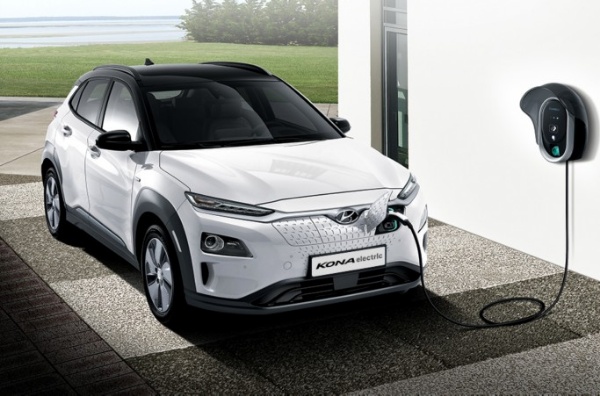FERUARY 9, 2021
STALLION MOTOR UNVEILS NIGERIA’S FIRST ELECTRIC CAR

Stallion Motors manufacture Nigeria’s first electric car, it was announced last week at a elaborate ceremony held at the Sheraton Hotel.
Stallion Motors announced the news they will be manufacturing the vehicle Hyundai KONA infront of dignatries including the Minister of Works and Housing, Babatunde Raji Fashola, The Director-General National Automotive Design and Development Council, Jelani Aliyu, Director General of National Information Technology Development Agency (NITDA), Inuwa Abdulahi and the CEO of Stallion Motors, Anat Badjatya.
The vehicle specification includes being 100 per cent electric, contributing zero-emissions, able to travel 482 kilometers range for a nine hour charge and most importantly a 5 years of battery and a manufacturers warranty.
CEO of Stallion Motors, Anat Badjatya, stated that the Hyundai KONA electric car provides minimal noise, zero-emissions and is low maintenance to operate. He later insisted that electric cars have come to stay in Nigeria, and that Nigeria can not afford to be left behind in the global frame.
Mr Otunba Adebayo, one of the members in attendance who had the opportunity to test drive the, described the vehicles performance as exceptional. However he later insisted that the charging points structure within the nation could be a problem, but will be ironed out in time.
He also insisted that the introduction of the first electronic car will create production competition, highlighting that the federal government is already in discussion with Stallions Motors to reduce the price of cars to make them affordable to many Nigeria’s.
Aliyu, Director of the NADDC, insisted that the independent organisation has been working closely with Stallion Motors and other stake holders to ensure that they assemble and products specifically configuration for Nigerian demographics and requirements.
Badjatya insisted that Stallion Motors are working closely with the authority to ensure the new developed vehicle is affordable to many Nigerian’s. Insisting that Nigerian’s need to embrace the future and zero-emission vehicles are certainly the future.
Source: Source: This Day, February 2021